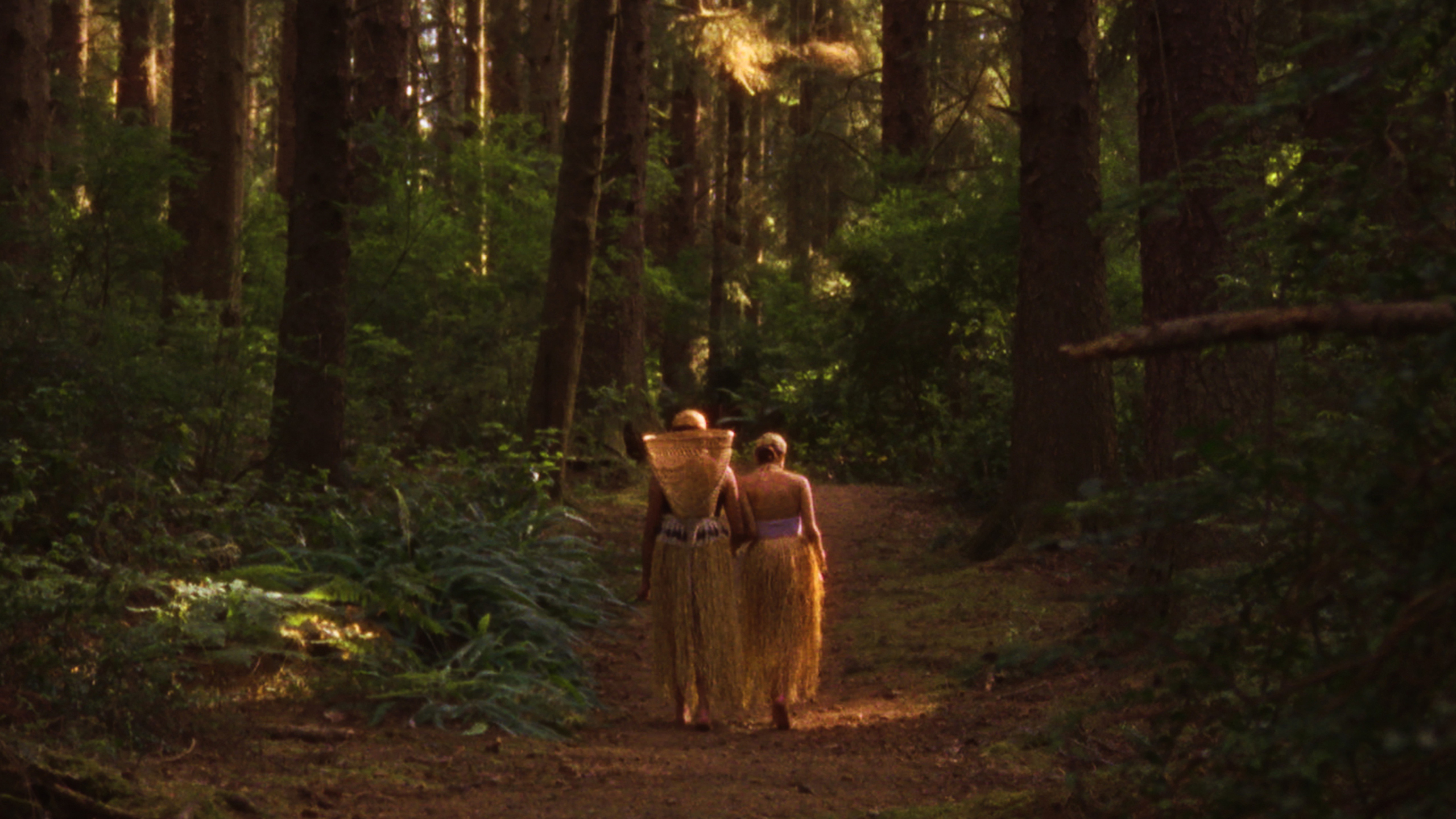
Long Line of Ladies Is More Than Just Another Period Piece
Sundance
Ahtyirahm “Ahty” Allen is a 13-year old girl like any other, on the cusp of womanhood and going through all the changes that come with it. What sets Ahty apart from the many other girls in their experience having their first menstrual period is that Ahty is a member of the Karuk tribe of Northern California, and she comes from a Long Line of Ladies.
Long Line of Ladies had its premiere on Jan. 20 at the 2022 Sundance Festival. Directors Rayka Zehtabchi and Shaandiin Tome knew that the story of the Ihuk flower dance was just the sort they were looking to tell. The sacred, coming-of-age ceremony is a tradition of the Karuk people celebrating a girl’s entry into womanhood. Though it had fallen out of practice for over 80 years, the dance was revived in 1996 by a dedicated group of Karuk ceremonial families.
Rayka Zehtabchi is the director of Period. End of Sentence, the Oscar-winning documentary short about a group of women in Hapur, India who learned how to operate a machine that makes low-cost, biodegradable sanitary pads they could sell at affordable prices. These efforts empowered the women to reject the mindset in India of menstruation as a taboo subject. “While that film was really positive and sort of helped to kick start a really positive movement in the menstrual equity space,” Zehtabchi says, “It sort of had to lay the groundwork of what this stigma is that we’re dealing with all over the world.” Period. End of Sentence was also the beginning of The Pad Project, a nonprofit organization dedicated to menstrual equality and education around the world.
“It’s a really interesting thing to be able to go to a community and see the way that [menstruation is] talked about is just so open.”
Tome explains that she and Zehtabchi, in conjunction with The Pad Project, were looking for a new story that explored the subject from a different point of view. “We were trying to find a story about menstrual equality that was more on the happier and community-driven side of things rather than the detrimental side,” she says. “I’m Diné—that’s Navajo in the southwest region—and we kind of have our own version of an Ihuk called a Kinaalda … so I’ve always known about coming-of-age ceremonies since I was younger.”
Zehtabchi and Tome were researching the Ihuk and found Pimm Tripp-Allen, Ahty’s mother, who ended up serving as a producer on the film. “She’s just this incredible woman,” Zehtabchi says. The Ihuk had long fallen out of practice in Karuk culture, but people like Allen have worked over the decades to bring the ceremony back to the community and teach the young people a positive way of looking at things. “It’s a really interesting thing to be able to go to a community and see the way that [menstruation is] talked about is just so open,” Tome says. “It creates a sense of ownership that I think the larger US just doesn’t have when it comes to young women getting their first periods.”
Zehtabchi explains that one of the aspects of Long Line of Ladies that she loves most is how the focus shifted into something greater than positive attitudes about menstruation. “Menstruation is barely even mentioned,” Zehtabchi says. “It’s not even as much about menstruation as it is about community and the importance of having those people around you—not just when you’re 13 years old and going through your first period … but people that you can have with you throughout your life that you can always lean on.”
For Ahty Allen, Zehtabchi, Tome and audiences who see the film, both the Ihuk flower dance and Long Line of Ladies are rewarding journeys of growth, embracing womanhood and the people who provide support and a positive presence in your life. For more information on The Pad Project, visit thepadproject.org.